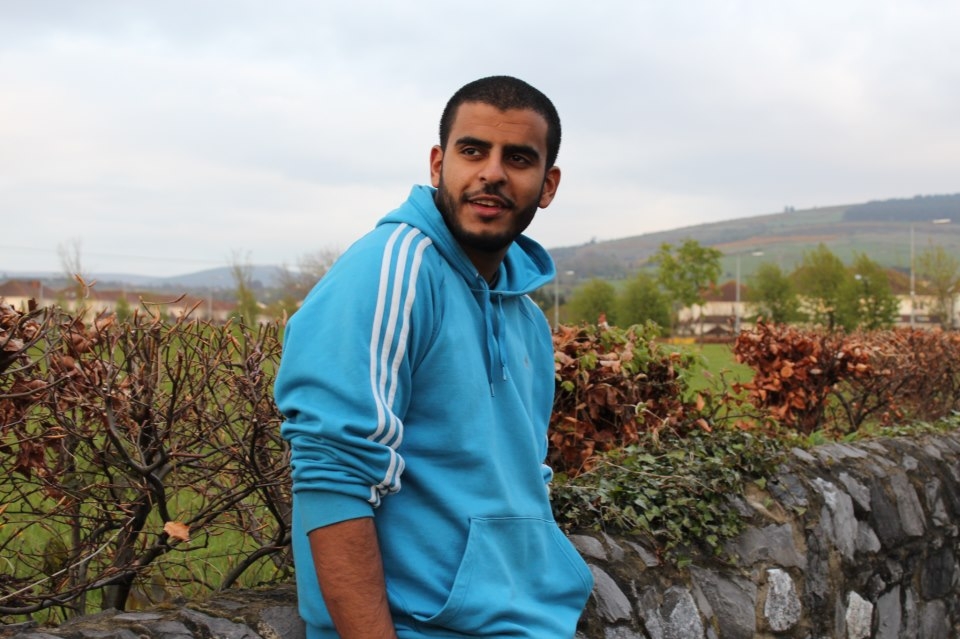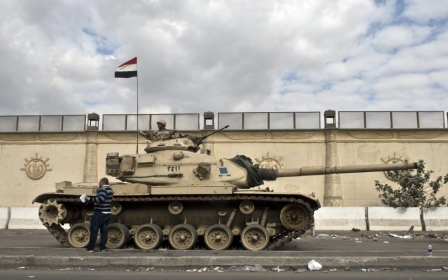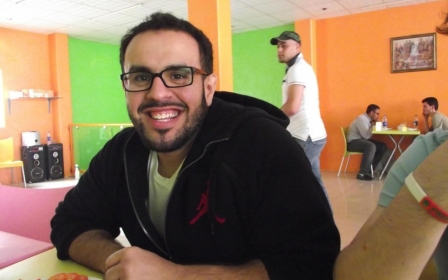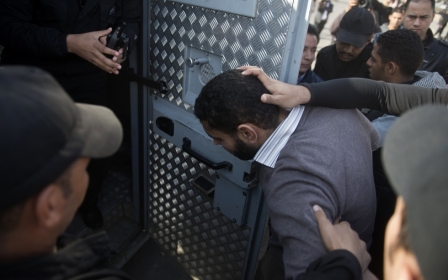Ireland urged to help Irish teen held in Egypt

The family of an Irish teenager is urging the Irish government and European Union (EU) to do more to secure his release from an Egyptian prison where he's been held for almost 10 months.
Ibrahim Halawa and his three older sisters were arrested in August last summer at the height of protests against the overthrow of president Mohamed Morsi in Egypt. The four siblings were detained along with hundreds of other people in a mass round up of people at or near protest sites.
They were charged with offences ranging from setting fire to a police station to murder and joining a terrorist organisation. However, the siblings deny all of these charges and say they were actually sheltering inside a mosque from riots at the time the alleged offenses took place.
After being held for three months, the sisters were eventually released last November. However, Ibrahim, who was 17 years old at the time of his arrest - and therefore technically a child under international law - remains in detention.
Ibrahim has been held without access to due process or justice, say his family. His sister, Somaia Halawa, told the Middle East Eye that his family is also very concerned for his health.
Somaia said the last time their mother visited him his self-esteem was extremely low. "He was really destroyed. He has lost hope. It's just too much. Nine months now, nearly 10 and he still does not know why he is being held. Sometimes he asks why the Irish government is not doing more for him."
Adding to their concerns, Ibrahim was shot in the hand just prior to his arrest. The family say that due to the chaos of the protest, they are unsure who actually pulled the trigger. However, their assumption is that it was one of the riot police.
The family says he has not received adequate medical treatment, even 10 months after his injuries were inflicted, and that his fingers have been badly damaged by the lack of medical care.
Somaia describes the conditions in Salam Prison, where he was held for about two months, as dismal. At first he was in a room which was shared by about 15 people, but then they crammed more prisoners in, “more than 100”, she estimates.
It has not been explained by authorities why Ibrahim’s sisters were released months ago and he was not. The four siblings were arrested together, charged together, received various hearing dates and sentences together and yet were not released together. The family does not believe it has anything to do with women being released as a priority, since both men and women were released on the same day as the sisters were and many women still remain in prison.
Time running short
Although Ibrahim is an Irish and EU citizen, both Dublin and Brussels have been slow to act on his case.
EU Foreign Policy Chief Catherine Ashton didn’t raise Ibrahim’s detention during a visit to Egypt in April. Ashton’s office said it could not raise individual cases with Cairo and can only broach general issues of human rights.
While the Irish government has responded to the family's calls for justice and promised assistance, Somaia said they have been largely ineffective.
“We really appreciate what the [Irish government] are doing but feel that more pressure could be applied by them on the Egyptian authorities."
This is vital, she said, "because once Ibrahim's case is scheduled and he is sentenced, it will be really hard to do anything then.
“If Ibrahim gets a death sentence like the others then it will be too late to do anything. So we need things to be done quicker and for much more pressure to be applied now."
His case is expected to come before the criminal courts in the upcoming weeks. So far he has been brought before judges several times but usually without a lawyer being allowed to represent him and without being afforded the opportunity to make his case.
His last hearing it took place in “a military environment” says his sister, “there were hundreds of people being tried at the same time and no lawyers were allowed in the hearing but every defendant was automatically given a renewed sentence of 45 days.”
Mohamed Soltan
Ibrahim’s is not the only case of a jailed Westerner in Egypt not being championed by his government. The case of US citizen Mohamad Soltan has also gained widespread attention. Having been held in prison in Egypt for 262 days and being on hunger strike for 109 days his life is now said to be hanging in the balance.
US inaction in Soltan's case contrasts with previous examples where Washington has become heavily involved in detentions.
In March last year, seven US citizens held on charges of spying were released from jail in Egypt after months of political wrangling and pressure from the US. At the time, the Los Angeles Times reported that “the turnaround eased the most pronounced diplomatic crisis between Washington and Cairo in decades but damaged the standing of Egypt’s military rulers and pricked the pride of the nation’s sovereignty.”
As Western prisoners are supported by family and media campaigns, there is less coverage and assistance being offered to an estimated 16,000 other Egyptian prisoners detained since last July’s coup.
Egypt is increasingly facing international criticism over its treatment of political prisoners and protesters and particularly over its recent mass death sentences. Hassiba Hadj Sahraoui, deputy director of the Middle East and North Africa at Amnesty International in London has said, “Egypt’s judiciary risks becoming just another part of the authorities’ repressive machinery, issuing sentences of death and life imprisonment on an industrial scale.”
The Irish Embassy in Egypt was contacted for a response but had not replied by time of publication.
Middle East Eye propose une couverture et une analyse indépendantes et incomparables du Moyen-Orient, de l’Afrique du Nord et d’autres régions du monde. Pour en savoir plus sur la reprise de ce contenu et les frais qui s’appliquent, veuillez remplir ce formulaire [en anglais]. Pour en savoir plus sur MEE, cliquez ici [en anglais].




